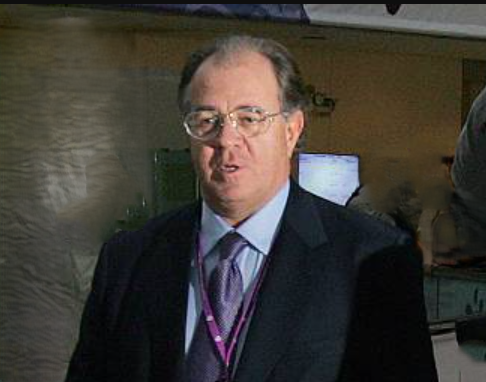The industrial legacy of his family has been impressively grown by Theodore Angelopoulos into a sophisticated and extremely profitable international company portfolio. His estimated $819 million net worth is evidence of his strategic vision, careful execution, and unusually discreet approach to wealth. Angelopoulos was born into a tradition that contributed to the development of Greece’s steel industry in the middle of the 20th century. He did more than simply inherit money; he changed it.

He changed his focus to shipping by the middle of the 1990s, and in 1996 he founded Metrostar Management in Athens. Tanker demand was increasing and global energy markets were becoming more intense, thus this timing was especially advantageous. Metrostar swiftly rose to prominence in the global tanker industry after entering the oil transportation market with remarkable agility. Angelopoulos scaled precisely and drastically cut operational inefficiencies by utilizing knowledge, money, and a deep awareness of risk. Industry peers frequently view his ability to create one of the top tanker operators in the world in less than ten years as exceptionally successful.
Theodore Angelopoulos – Bio and Financial Summary
| Detail | Information |
|---|---|
| Full Name | Theodore Angelopoulos |
| Nationality | Greek |
| Education | BSc in Business Administration – University of Zurich |
| Industry Sectors | Steel, Oil Tankers, Shipping, Yachts, Real Estate, Private Equity |
| Company | Metrostar Management (Founded 1996), Oceanco (Acquired) |
| Estimated Net Worth | $819 million (Source: Forbes) |
| Known Properties | Residences in Greece, London, France; Summer house in Mykonos |
| Spouse | Gianna Angelopoulos-Daskalaki |
| Source |
What distinguishes Angelopoulos is that his approach is remarkably similar to those of other multinational tycoons who blended diversification with conventional business methods. He bravely ventured into high-value industries rather than sticking to shipping. The purchase of the Dutch shipbuilding firm Oceanco was a key action. Under his control, Oceanco became a dominant force in the ultra-luxury mega-yacht market, which serves A-list celebrities, billionaires, and royalty as floating representations of elite achievement.
This shift from freight to luxury had a strategic purpose in addition to being aesthetically pleasing. The custom yacht business continues to be extremely profitable and highly insulated, whereas the transportation industry often undergoes unpredictable cycles linked to fuel prices and geopolitical concerns. By making this change, Angelopoulos’s customers grew from gasoline dealers to financiers and from influencers to industrialists. This degree of change, which was especially creative in its implementation, altered the way that Greek tycoons are viewed around the world.
Theodore Angelopoulos established a strong investment division that works with financial institutions, private equity, and international real estate in addition to ships and steel. His name is associated with properties ranging from downtown London to Mykonos, illustrating a guy whose interests extend from strategic capitals to picturesque getaways. His vacation home in Mykonos is particularly representative since it provides social prominence in addition to privacy, drawing a community of policymakers and jet-setters every season.
Gianna Angelopoulos-Daskalaki, his wife, has an equally significant impact. A different kind of aspiration, one based in academia, culture, and diplomacy, is reflected in her career. Despite its financial overruns, she oversaw the organizing committee for the 2004 Athens Olympics, which had a lasting impression on Greek patriotism. As the founder of several leadership programs, such as the Angelopoulos Global Public Leaders Program, and the vice-chair of the Dean’s Council at Harvard’s Kennedy School, Gianna keeps the family name prominent in both academic and charitable circles.
Their united footprint has special symbolic meaning. While Theodore operates with a modest profile but significant impact, Gianna contributes visibility and intellectual influence. This arrangement is quite similar to other power couples, such as Bill and Melinda Gates, in which one partner spearheads public activities while the other oversees the backstage management of business foundations. Each is able to navigate their own realms with focused intent thanks to this division of labor, which also makes their legacy incredibly enduring.
Many of Greece’s rich elites came under heavy scrutiny during the 2010s economic crisis, but the Angelopoulos family was able to maintain some degree of public trust because of their charitable giving and international educational collaborations. Both international researchers and young Greek innovators have benefited greatly from their scholarships and programs.
For example, Cambridge University’s Gianna Angelopoulos Programme for Science, Technology, and Innovation (GAPSTI) still produces highly skilled researchers. In keeping with Europe’s drive for competitive digital ecosystems, the program is designed to assist ideas in moving from academic concepts to commercial realities.
Angelopoulos’ investments have moved toward more sustainable, tech-enabled growth in recent years as shipping and logistics have experienced a digital transition. He has expressed interest in green energy transitions in the maritime industry as well as logistics powered by artificial intelligence. These actions are not only reactive; rather, they are a part of a long-term, extremely effective plan to stay relevant and prepare for changing regulatory environments.
Angelopoulos’s lack of flamboyance makes him stand out in the backdrop of familial wealth. His approach is methodical, low-key, and consistently successful, in contrast to some of his peers who participate in public arguments or political theater. There isn’t a Twitter account creating waves or a vast media empire. His investments, which are strong, diverse, and remarkably resilient to fluctuations in the world economy, speak for him instead.
The serene assurance with which he runs his empire is especially noteworthy. While the public’s focus shifts from celebrity start-ups to stock market drama, Angelopoulos is making investments in long-term infrastructure, creating platforms that will endure economic upheaval. His money is constantly at work, steadily influencing the next phase of business and innovation, whether it is through scientists launching patents or tankers traversing oceans.











